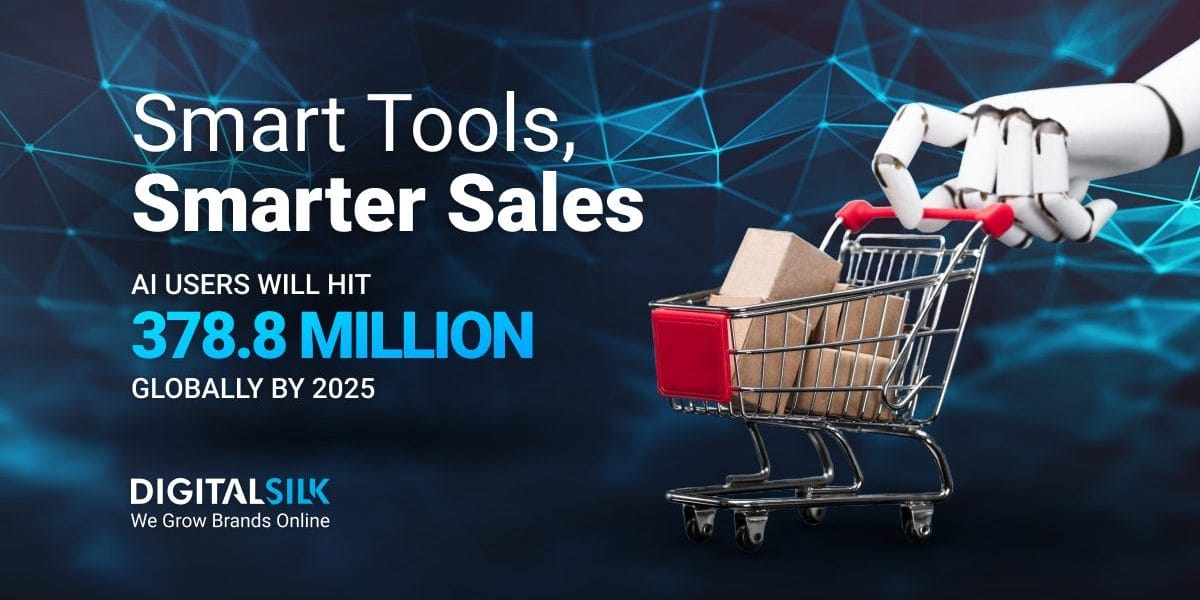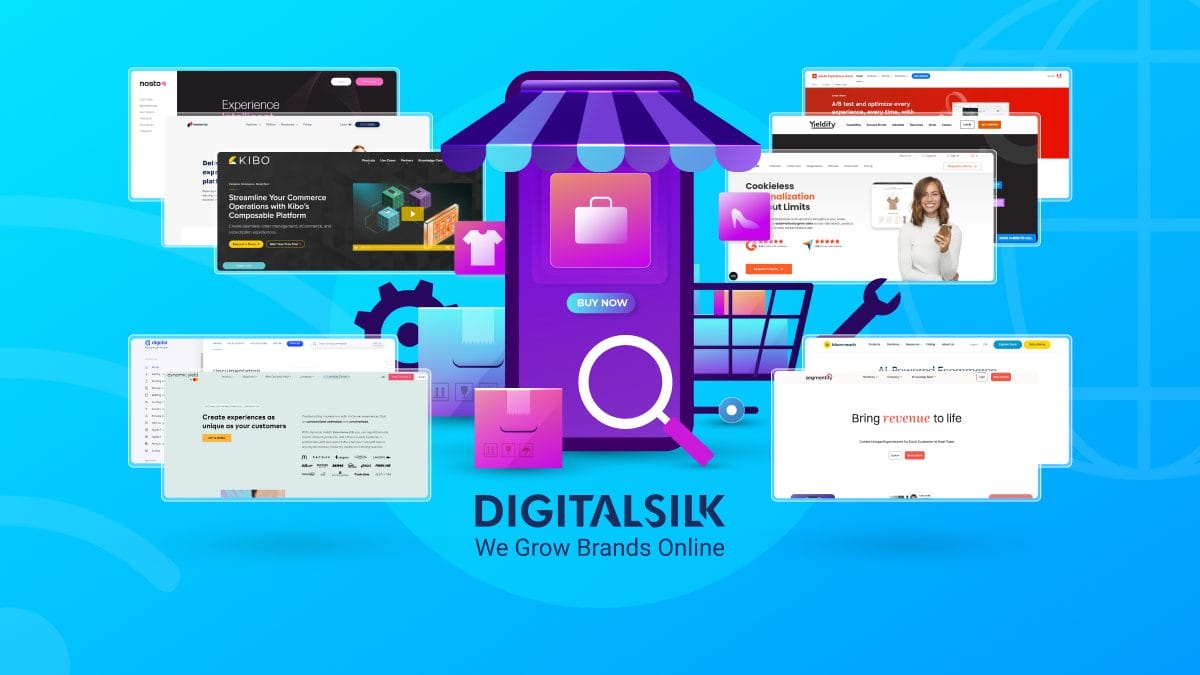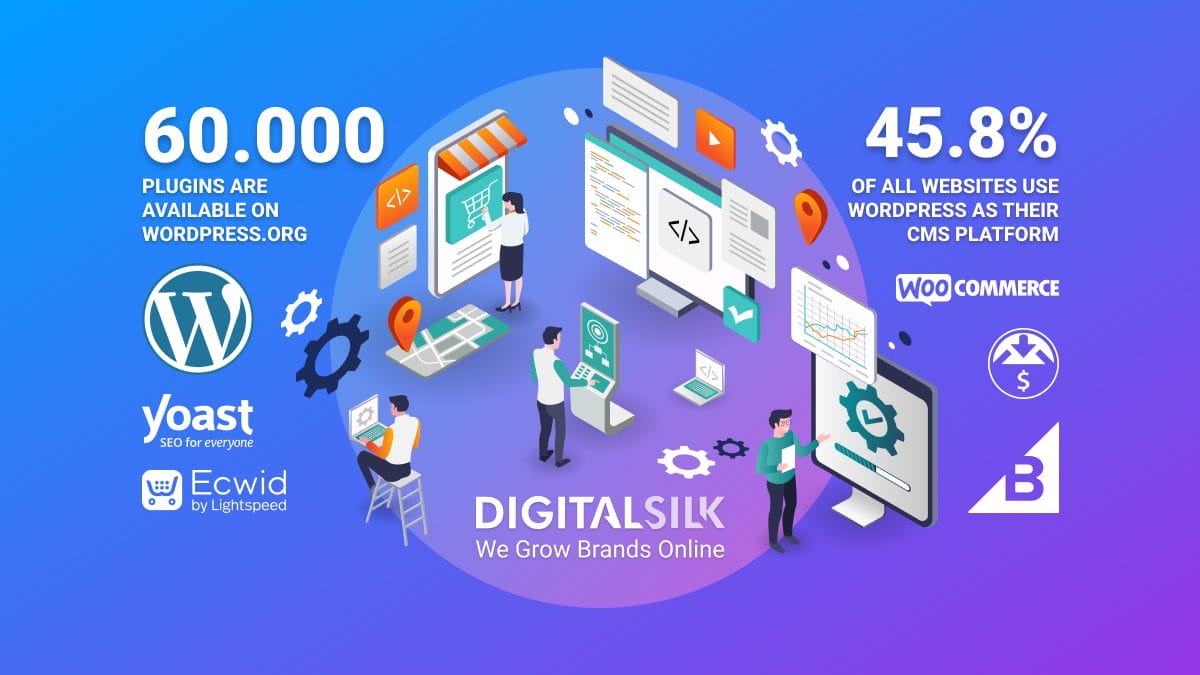The number of global AI tool users is projected to reach 378.8 million in 2025.
As more businesses recognize the convenience and competitive edge artificial intelligence offers in a saturated market, this number is expected to rise continuously in the coming years.
But how can eCommerce businesses leverage automated and intelligent tools to improve their processes, customer experience and sales?
In this post, we’ll explore 15 of the best AI tools for eCommerce businesses and provide insights into successful implementation in online retail.
15 Best AI Tools For eCommerce Businesses
With the global AI market expected to hit 228.3 billion by 2026, eCommerce businesses can jump on the automated bandwagon and ride it straight to streamlined processes, higher Return on Investment (ROI) and increased conversion rates and sales.
Below, we’ve compiled a list of 15 AI tools for eCommerce businesses based on their features, user-friendliness and market popularity.
1. ChatGPT

It’s difficult to start the discussion about AI without mentioning ChatGPT as perhaps the leader of the AI chatbot domain.
With approximately 250 million users globally, the platform uses generative pre-trained transformer technology to deliver human-like content and engage with customers in real time.
As a result, ChatGPT can help businesses grow their eCommerce stores by creating detailed product descriptions, blog or social media posts and marketing emails.
You can use the platform to brainstorm ideas, analyze relevant keywords, conduct market or competitor research, optimize existing content and research specific topics to support your business activities.
2. Shopify Magic

Shopify Magic offers a collection of valuable tools for eCommerce brands, enabling businesses to customize all customer-facing aspects of their online store.
This includes creating product photos or replacing backgrounds with the platform’s AI-enabled image editor, generating SEO-optimized and eCommerce-friendly content for FAQ sections or emails and getting personalized and relevant responses from its live chat feature.
Shopify offers round-the-clock support and step-by-step instructions for the initial setup, creates instant reports for inventory tracking and management and 24/7 performance data.
3. Solidgrids

Solidgrids uses automated post-processing to turn phone photos into usable product images in a matter of seconds. This way, eCommerce businesses can create professional and marketable content without additional resources or skills.
The tool offers automatic background removal, aspect ratio and shadows modifications, brand-specific banner generation and SEO-optimizations for on-page content.
You can display the images created by the platform on separate pages for each item, video tutorials, galleries, pop-up messages and email marketing campaigns.
4. Nosto
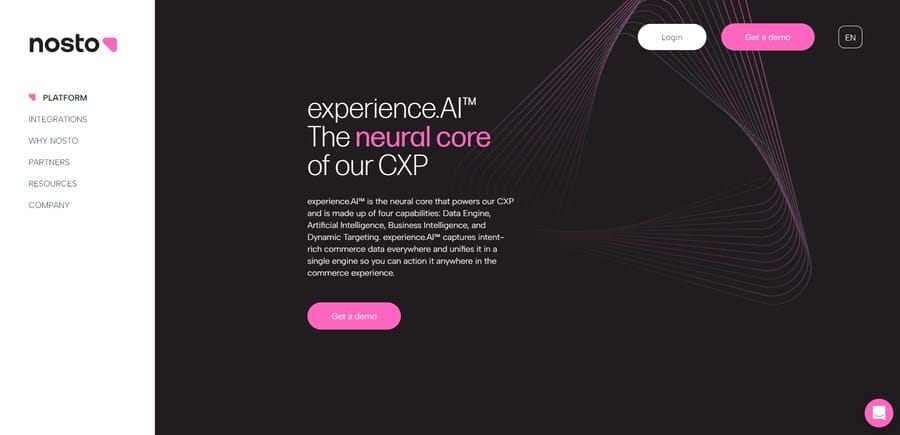
As far as eCommerce personalization goes, Nosto nails its AI-powered neural core to identify intent-rich data, behavioral analytics and user profiles.
The tool analyzes customer data signals in real time to identify behavioral patterns, such as page views, search queries, cart or site abandonment, product returns and transactions.
Nosto then uses this data to train its machine-learning model to contextualize recommendations, offer conversational experiences and automate tedious workflow tasks.
5. Adobe Sensei
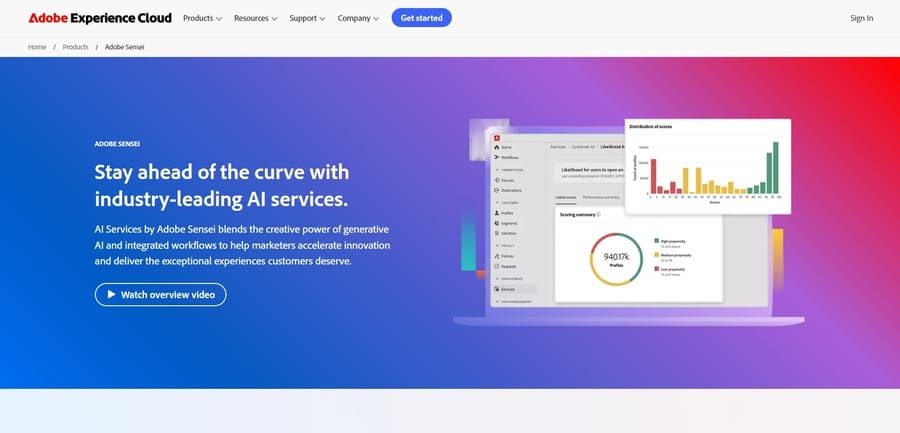
Adobe has always been at the forefront of the technological revolution.
Its own services combine the creative prowess of generative AI and integrated workflows to accelerate everyday operations and tackle common eCommerce challenges.
Sensei GenAI acts as brands’ co-pilot in connecting with consumers, driving conversion rates, and delivering hyper-personalized experiences with advanced decision-making algorithms.
The platform offers actionable customer insights, patented data privacy and protection regulations, dynamic content generation and robust marketing automation.
6. Persado

Persado generates fully optimized and personalized content at scale to drive customer engagement and unify language use across all marketing platforms and touchpoints.
The tool can create brand-specific, engaging and performance based on-page copy by pinpointing specific and impactful message elements that resonate with your target audience.
Persado consistently learns and improves its algorithm to connect with customer segments and accounts for performance metrics, user demographics, cultural nuances and language use.
The platform can automatically evaluate the influence of each message element on consumer behavior and adjust to changes in performance.
7. Kili
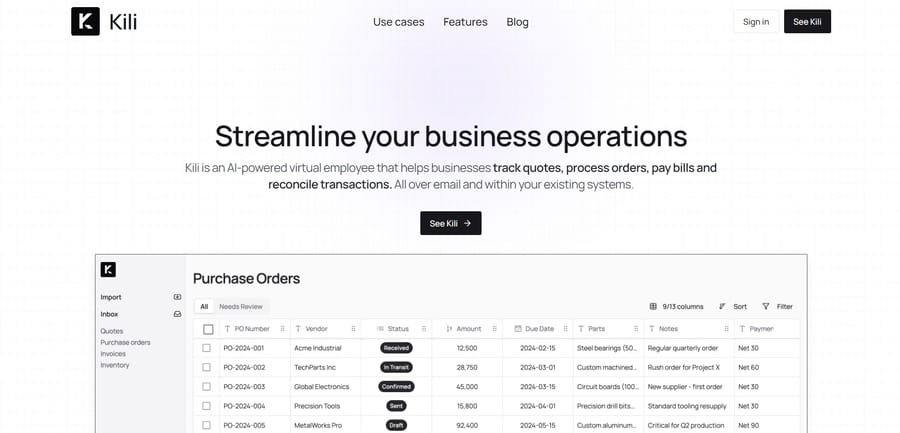
As an AI-powered virtual employee, Kili’s main strength lies in streamlining operations, saving time on order processing and transactions and completing tedious everyday actions.
Kili relies on an automatic processing engine to extract data from relevant documents such as invoices, receipts or purchase orders.
Moreover, the platform can automate email communications by analyzing email and attachments in minutes, just like a regular team member — but much faster.
Additionally, Kili can integrate with all your existing systems and workflows, such as accounting, CRM or ERP systems. This way, the platform can seamlessly handle orders, invoices and flag discrepancies without manual intervention.
8. Salesforce Einstein
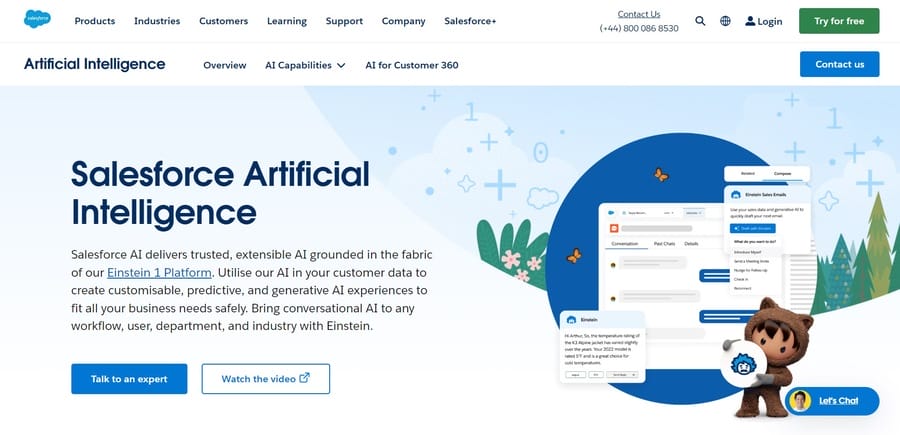
Salesforce‘s nod to Einstein closely aligns with the physicist’s expertise in predictive analytics.
The platform is an all-in-one solution that boosts productivity and personalization through predictive and generative AI.
Its services are divided into four main categories — sales, customer service, marketing and commerce.
Sales generates automated email summaries, enriched customer emails and real-time behavioral predictions while customer service relies on relevant user interactions to solve issues quickly and seamlessly.
Marketing automates outreach customization and creates tailored customer journeys while commerce generates product descriptions and personalized recommendations.
9. Syte

Syte drives business growth and conversions with visual discovery, AI tagging and merchandising.
The tool’s visual engine automatically recognizes specific product categories, attributes and styles in an image, which can also be used for tagging and indexing similar products across the eCommerce store.
Businesses can also tag at scale, create cross-platform hyper-personalized product recommendations and use visual and data-driven insights to adjust their strategy on the fly.
10. Patterned

Generating repeatable, on-brand and visually appealing patterns with AI has never been easier thanks to Patterned.
Users can describe the patterns they need, create similar designs with high adjustability and control the resolution or color variations of each print.
The platform creates consistent, versatile patterns for physical and digital products alike, from clothing and packaging to websites and social media posts.
11. Plerdy
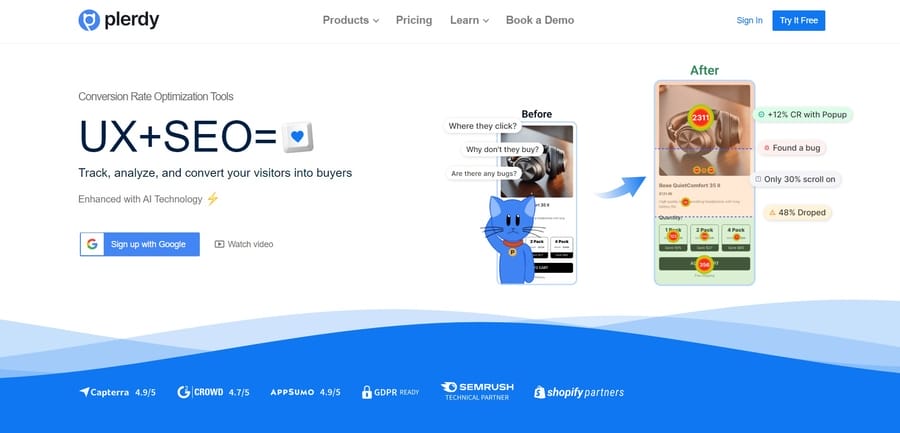
Plerdy offers in-depth analytics of your eCommerce website, including design analysis, user group and segmentation, traffic channels optimizations and conversion rate goals.
The tool discovers personalized insights, offers heatmaps of user actions and aggregates behavioral data to maximize your conversion potential, encourage micro-interactions and increase engagement.
Plerdy’s nifty analytics features highlight your store’s profitability and number of completed transactions, determine user navigation paths for each page and define page depth impact on bounce rates and purchases.
12. Lumalabs

Innovation is at the forefront of Lumalabs’ unique value proposition — its so-called “Dream Machine” acts as a fluid medium for creating 3D images and videos based on real-world scans.
Users can reference existing objects, duplicate, modify and remix content to create new digital assets or enhance existing ones for immersive product experiences.
The tool supports automatic video looping, shot expansion, signature and consistent character movements and reference visuals for creating quick simulations.
13. Bluecore
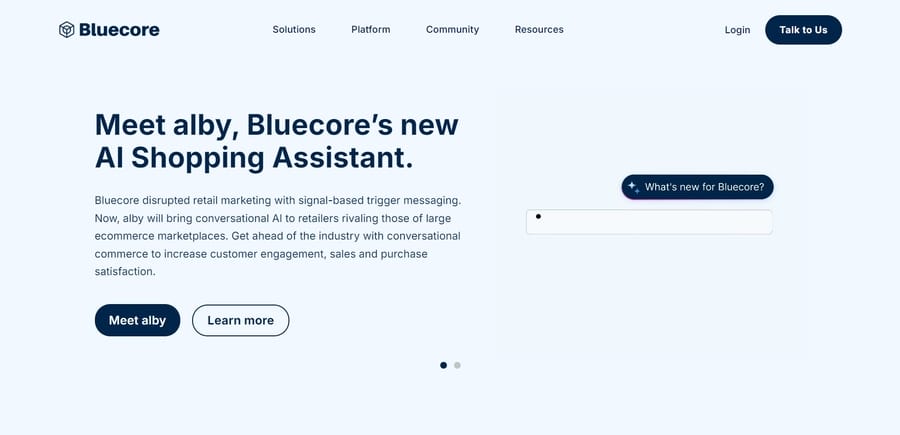
As one of the best AI tools for eCommerce marketing, Bluecore uses automation to turn fleeting visitors and anonymous shoppers into loyal customers.
The tool uses advanced shopper identification features to determine new traffic, re-engage existing clients and fill the gaps in messaging across all platforms and collaterals.
Bluecore can boost your online store’s relevance by predicting what customers need based on previous shopping behavior, real-time interactions and purchase frequency.
14. Inbenta
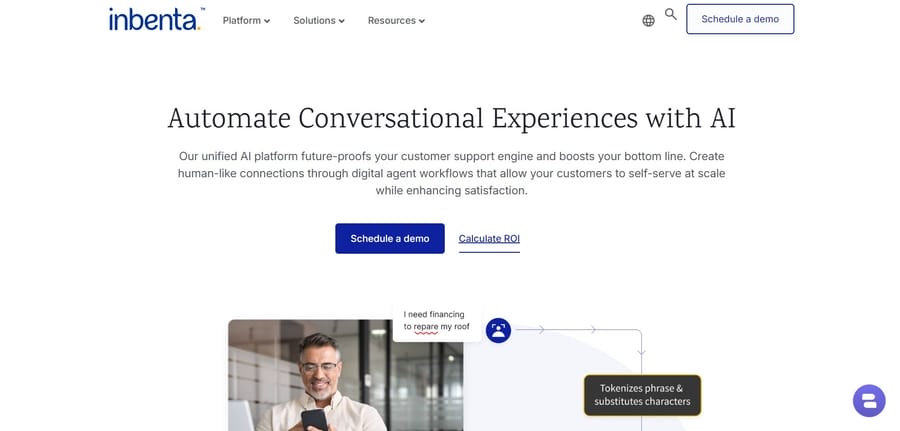
Acting as a future-proof solution for all eCommerce customer concerns, Inbenta uses human-like interactions to solve customer issues, decrease support tickets and increase conversions.
Inbenta relies on its AI-enabled and self-learning knowledge base to respond to client queries, predictive and instant search-based content resources, custom results based on user status and activity and educational product videos for improved customer satisfaction and loyalty.
Moreover, the platform gives human agents multi-platform digital workflows, omnichannel support ticketing and seamless chat escalation in case the AI fails to process a specific request.
15. Nifty

As one of the best free AI tools for eCommerce businesses, Nifty offers a comprehensive suite of project management tools, resources and workflow automation.
Users can rely on prompts to describe task priorities, progress and other relevant details to streamline communication, project progress and updates.
Next, you can automatically generate bespoke documents to facilitate feedback and approvals, deliver customized reports and create tasks with assigned due dates and other team-specific details.
What To Look For In AI Tools For eCommerce Businesses
With an average cart abandonment rate of 70.19%, eCommerce businesses don’t exactly have the freedom to experiment with different platforms until they find the right one.
Instead, you should be strategic, detail-oriented and thorough in your research to avoid wasting time and resources on a tool that doesn’t meet your business needs.
To narrow down your search, you can focus on the following AI tool characteristics:
- Compatibility with website infrastructure: Determine if the AI is compatible with your existing CMS, CRM or ERP systems to minimize website downtime, mitigate cybersecurity threats and offer a seamless user experience.
- Scalability and adaptability: Evaluate how the tool handles high-traffic periods, visitor interactions, data input/output and engagement fluctuations. Look for customizable features and integrations to support growth and changing business needs.
- Virtual assistants or chatbots: Setting up live chats or virtual assistants can significantly improve user’s shopping experience. With a global live chat satisfaction rate of 81.1%, you can speed up tedious processes, provide personalized recommendations and handle customer service inquiries.
- Customer feedback analysis: 89% of customers are more inclined to make repeat purchases after a positive customer service experience. You can use AI tools to analyze customer feedback and sentiment, identify pain points and address them proactively. This can result in higher customer satisfaction, retention and brand loyalty.
- Predictive user analytics: You can use AI algorithms to gather and analyze data on user behavior, past interactions and shopping preferences. This way, you get valuable insights for targeted marketing campaigns, personalized recommendations and more effective customer engagement.
- Audience segmentation and targeting: Only 42% of marketers are well acquainted with their target audience. AI can help segment and target your audience based on demographics, behavior patterns, interests and location to optimize your marketing efforts and increase conversion rates.
Why AI Tools Are Essential For eCommerce In 2025
79% of business strategists believe AI is integral to their success going into 2025, but how exactly can you benefit from implementing this technology?
- Increased sales and engagement: With proper customer analytics, better product recommendations and efficient communication, AI can help boost sales and engagement on your eCommerce platform.
- Better productivity: 64% of business owners believe that AI can help improve productivity in their operations. Instead of manually handling repetitive tasks, your team can focus on core business activities while AI handles the rest.
- Reduced operational costs: While it may seem like a greater investment up front, implementing AI tools in your eCommerce business can lead to long-term cost savings. You can identify areas of improvement and implement efficient processes, which can then reduce operational costs.
- Enhanced security: AI fraud detection tools can help protect your business from cyber-attacks and fraudulent activities. This protects your business and your customers’ data, which builds mutual trust and establishes a dependable reputation.
Ethical Considerations And Potential Challenges
As AI tools become an integral part of starting and managing an eCommerce store, certain ethical considerations and challenges may arise, such as:
- Protecting sensitive customer data: Whether you’re using AI for large-scale automation or simply generating a few videos, it’s essential to consider the impact on user privacy. Have customers consented to have their data collected and analyzed? Is your AI system secure enough to protect sensitive information like credit card details or personal identification?
- Complying with Data Protection Regulations (GDPR): As a business owner, it’s your responsibility to ensure your AI system follows the guidelines set by data protection regulations like GDPR. This includes being transparent about how it collects and uses customer information and setting up data processing agreements and opt-out options.
- Addressing biases in AI algorithms: Even though self-learning attributes are some of AI’s greatest strengths, they can also be some of its biggest weaknesses. Training data often contains human biases, which can ultimately lead to unfair treatment or unintentional discrimination.
- Balancing automation and human touch: Despite the convenience and commodity AI offers in streamlining everyday operations, it can never fully replace human interactions. Even if you use AI for repetitive, time-consuming or mundane tasks, you should give customer interactions a human touch to foster genuine connections with your audience.
Find The Right AI Tools For Your eCommerce Business With Digital Silk
AI tools can help you optimize your eCommerce business and improve customer experience, but you don’t have to assess your options on your own.
At Digital Silk, our in-house web designers and developers, branding and marketing specialists can help you identify the right tools and strategies for your specific business needs.
As a recognized web design agency, our services include:
- eCommerce web design and development
- Shopify development
- Magento development
- WooCommerce development
- Branding services
Throughout our partnership, our team takes full project ownership without making you feel like we’re taking over, keeps you in the loop every step of the way and delivers measurable results.
Contact our team, call us at (800) 206-9413 or fill in the Request a Quote form below to schedule a consultation.
"*" indicates required fields


